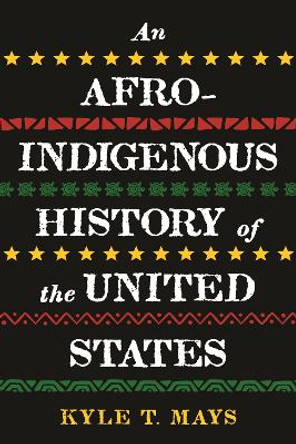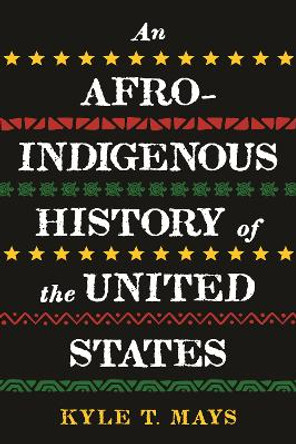Description
While the selections cover centuries of Afro-Latin@ history, since the arrival of Spanish-speaking Africans in North America in the mid-sixteenth-century, most of them focus on the past fifty years. The central question of how Afro-Latin@s relate to and experience U.S. and Latin American racial ideologies is engaged throughout, in first-person accounts of growing up Afro-Latin@, a classic essay by a leader of the Young Lords, and analyses of U.S. census data on race and ethnicity, as well as in pieces on gender and sexuality, major-league baseball, and religion. The contributions that Afro-Latin@s have made to U.S. culture are highlighted in essays on the illustrious Afro-Puerto Rican bibliophile Arturo Alfonso Schomburg and music and dance genres from salsa to mambo, and from boogaloo to hip hop. Taken together, these and many more selections help to bring Afro-Latin@s in the United States into critical view.
Contributors: Afro-Puerto Rican Testimonies Project, Josefina Baez, Ejima Baker, Luis Barrios, Eduardo Bonilla-Silva, Adrian Burgos Jr., Ginetta E. B. Candelario, Adrian Castro, Jesus Colon, Marta I. Cruz-Janzen, William A. Darity Jr., Milca Esdaille, Sandra Maria Esteves, Maria Teresa Fernandez (Mariposa), Carlos Flores, Juan Flores, Jack D. Forbes, David F. Garcia, Ruth Glasser, Virginia Meecham Gould, Susan D. Greenbaum, Evelio Grillo, Pablo "Yoruba" Guzman, Gabriel Haslip-Viera, Tanya K. Hernandez, Victor Hernandez Cruz, Jesse Hoffnung-Garskof, Lisa Hoppenjans, Vielka Cecilia Hoy, Alan J. Hughes, Maria Rosario Jackson, James Jennings, Miriam Jimenez Roman, Angela Jorge, David Lamb, Aida Lambert, Ana M. Lara, Evelyne Laurent-Perrault, Tato Laviera, John Logan, Antonio Lopez, Felipe Luciano, Louis Pancho McFarland, Ryan Mann-Hamilton, Wayne Marshall, Marianela Medrano, Nancy Raquel Mirabal, Yvette Modestin, Ed Morales, Jairo Moreno, Marta Moreno Vega, Willie Perdomo, Graciela Perez Gutierrez, Sofia Quintero, Ted Richardson, Louis Reyes Rivera, Pedro R. Rivera , Raquel Z. Rivera, Yeidy Rivero, Mark Q. Sawyer, Piri Thomas, Silvio Torres-Saillant, Nilaja Sun, Sherezada "Chiqui" Vicioso, Peter H. Wood
An edited volume on the history and culture of Afro-Latino/as in the US
About the Author
Miriam Jimenez Roman is a visiting scholar in the Africana Studies Program at New York University and Executive Director of afrolatin@ forum, a research and resource center focusing on Black Latin@s in the United States.
Juan Flores is Professor in the Department of Social and Cultural Analysis at New York University. His most recent works include The Diaspora Strikes Back: Caribeno Tales of Learning and Turning, From Bomba To Hip-Hop: Puerto Rican Culture and Latino Identity, and the English translation of Edgardo Rodriguez Julia's book Cortijo's Wake, also published by Duke University Press.
Reviews
"[R]equired reading for all Latinos. . . . This important reader provides critical information from a wide variety of approaches on the evolution and current realities of Black Latinos and Latinas. From poetic to musical to social scientific sources, this is a powerful 360-degree treatment of the subject." - Angelo Falcon, National Institute for Latino Policy Book Notes
"This exciting collection is a great resource for anyone interested in Ethnic Studies, Cultural Studies, or American Studies." - Jenell Navarro, Women's Studies
"As a collection of pieces, many of which have been published previously, The Afro-Latin@ Reader ultimately serves as a compact archive of materials from various academic disciplines and creative genres that details the Afro-Latina/o experience in the United States. . . . The Afro-Latin@ Reader makes accessible to students, scholars, and the general public a virtually ignored set of important contributions, not only to the study of Afro-Latina/os, but to the discourse about race in the United States more generally." - Petra R. Rivera, Transition
"The collected works in The Afro-Latin@ Reader broaden definitions of blackness and latinidad and reveal the multiple ways in which Afro-Latino/as navigate national and cultural histories that have consistently denigrated or dismissed their African heritage and challenge US racial classifications that dismiss their cultural background and linguistic difference. The Afro-Latin@ Reader invites us to move beyond a binary understanding of racial identity and to embrace the allegiances that may be forged and, in many instances, have been forged among Afro-Latino/as, Latinos/as, African Americans, and other underrepresented groups in the US." - Sobeira Latorre, Anthurium: A Caribbean Studies
Journal
"The Afro-Latin@ Reader assembles in one place an extraordinary range of articles, chapters, and first-person accounts of Afro-Latin@ identity. These pieces show that explorations of Afro-Latin@ identities quickly reveal significant hidden histories of racialization, colonization, exploitation, and social mobilization. They complicate our understanding of the U.S. racial order and its complex systems of inclusion and exclusion. This collection is a much-needed addition to scholarship in ethnic studies."-George Lipsitz, author of American Studies in a Moment of Danger
"The Afro-Latin@ Reader is a superb collection, one that I cannot wait to use in my own courses. For some time now, scholars have engaged the history and anthropology of Black populations in Latin America, but the scholarship on the Afro-Latin@ presence (as configured on this side of the Rio Grande) has been more episodic and, to some extent, under-theorized. The breadth of The Afro-Latin@ Reader, as well as its effort to actually define the entire field, makes it a unique scholarly contribution."-Ben Vinson III, co-author of African Slavery in Latin America and the Caribbean
"[R]equired reading for all Latinos. . . . This important reader provides critical information from a wide variety of approaches on the evolution and current realities of Black Latinos and Latinas. From poetic to musical to social scientific sources, this is a powerful 360-degree treatment of the subject." -- Angelo Falcon * National Institute for Latino Policy Book Notes *
"As a collection of pieces, many of which have been published previously, The Afro-Latin@ Reader ultimately serves as a compact archive of materials from various academic disciplines and creative genres that details the Afro-Latina/o experience in the United States. . . . The Afro-Latin@ Reader makes accessible to students, scholars, and the general public a virtually ignored set of important contributions, not only to the study of Afro-Latina/os, but to the discourse about race in the United States more generally." -- Petra R. Rivera * Transition *
"The collected works in The Afro-Latin@ Reader broaden definitions of blackness and latinidad and reveal the multiple ways in which Afro-Latino/as navigate national and cultural histories that have consistently denigrated or dismissed their African heritage and challenge US racial classifications that dismiss their cultural background and linguistic difference. The Afro-Latin@ Reader invites us to move beyond a binary understanding of racial identity and to embrace the allegiances that may be forged and, in many instances, have been forged among Afro-Latino/as, Latinos/as, African Americans, and other underrepresented groups in the US." -- Sobeira Latorre * Anthurium *
Book Information
ISBN 9780822345725
Author Miriam Jimenez Roman
Format Paperback
Page Count 584
Imprint Duke University Press
Publisher Duke University Press
Weight(grams) 839g








